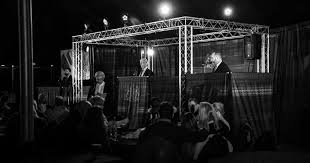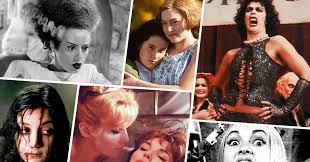In contemporary society, it's pervasive to encounter depictions of sex, nudity, and violence across various media platforms such as television, album covers, and advertisements. What were once considered taboo subjects are now frequently utilized to market products or draw audiences to the latest entertainment offerings. We've become desensitized to seeing scantily clad models or actors on our screens, a shift that began gaining momentum in the 1960s as younger generations embraced more liberal perspectives.
During this era, as The Beatles incited hysteria among fans worldwide, youth culture embraced psychedelic drugs to expand consciousness. Concurrently, movements advocating for women's liberation and civil rights gained momentum. Fashion trends reflected these changing attitudes, with designers shortening skirt lengths, encapsulating a spirit of optimism and excitement among the youth.
London, particularly, emerged as a cultural hub during this period, birthing numerous innovative artists, musicians, designers, and filmmakers who reshaped popular culture. Films such as The Pleasure Girls, Blow-Up, and Darling captured the zeitgeist, portraying the rise of hedonism and excessive consumption while also addressing the era's negative aspects. These movies marked a transition, showcasing once-taboo topics like independent women engaging in revelry or nudity on screen becoming more normalized.
As the New Hollywood movement gained prominence in the cinematic world, exemplified by films such as Easy Rider and Bonnie and Clyde showcasing unbridled violence and sexuality, filmmakers beyond the American shores began pushing boundaries as well. Drawing from the exploitation genre, two British films emerged in 1970 that were so shocking for the time that they repelled many viewers with more conservative sensibilities. These movies sparked a moral outcry, prompting reflection on whether British society had become too permissive and sexually liberated. Concerns arose about whether filmmakers should delve into taboo subjects such as violence and eroticism, amid fears that such films could foster moral decay.
These controversial films were "Mumsy, Nanny, Sonny, and Girly," directed by Freddie Francis, and "Goodbye Gemini," helmed by Alan Gibson. Both released around the same period, they were perceived by many British moviegoers as indicative of a decline in traditional values and decency. Consequently, calls for the films to be banned from theaters were swift, with several venues pulling them from their schedules following protests. As often happens with moral panics, the anxiety surrounding these films was exaggerated, with some viewing them as threats to British culture solely because they depicted themes like incest, murder, and sexual content.
"Mumsy, Nanny, Sonny, and Girly" follows four individuals masquerading as a model family in a rural estate, using their façade to ensnare local men and subject them to twisted games. Attempts to escape are met with murder, which the family films and watches as macabre entertainment. Although the film struggled to find an audience in the United Kingdom due to censorship, it has since gained a cult following.
Similarly, "Goodbye Gemini," also known as "Twinsanity," delves into the taboo subject of incest, portraying a pair of twins locked in an obsessive bond. Set against the backdrop of London's swinging party scene, the film explores their complex relationship, punctuated by terrifying and violent acts.
Many were unwilling to accept the shifting landscape of British culture, where filmmakers now had the freedom to produce daring works that challenged societal norms and delved into the darker aspects of human nature. While neither film was hailed as a masterpiece, they served as significant markers of the generational clashes that defined the era. Traditional values clashed with the aspirations of younger creatives seeking to push boundaries and shed light on both the joys and horrors of an era marked by newfound freedom and liberation.

























0 Comments